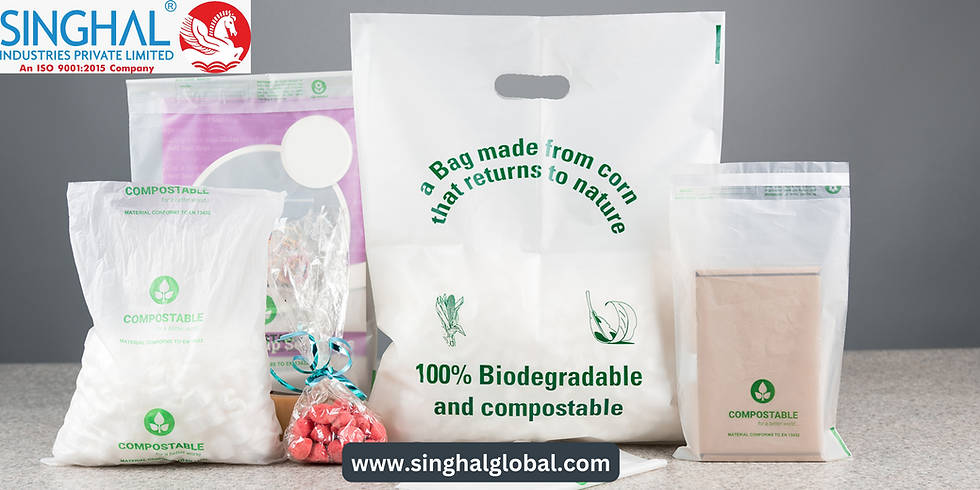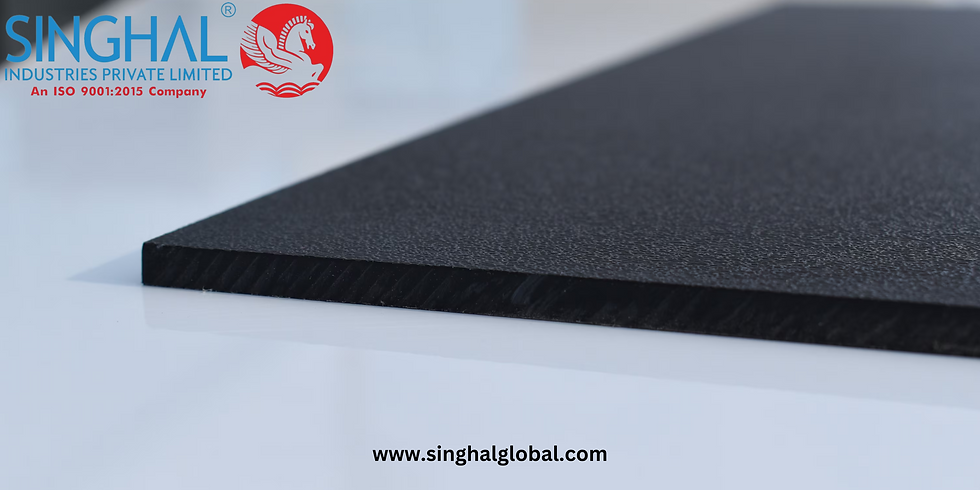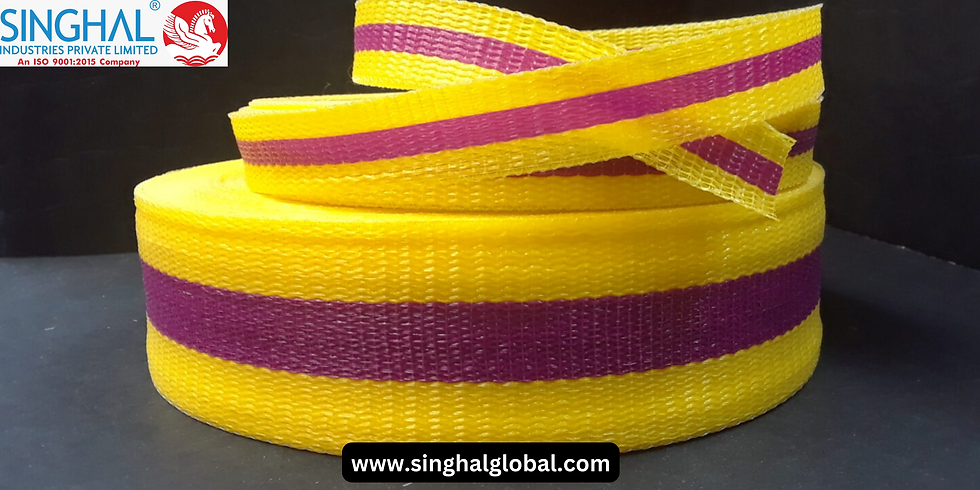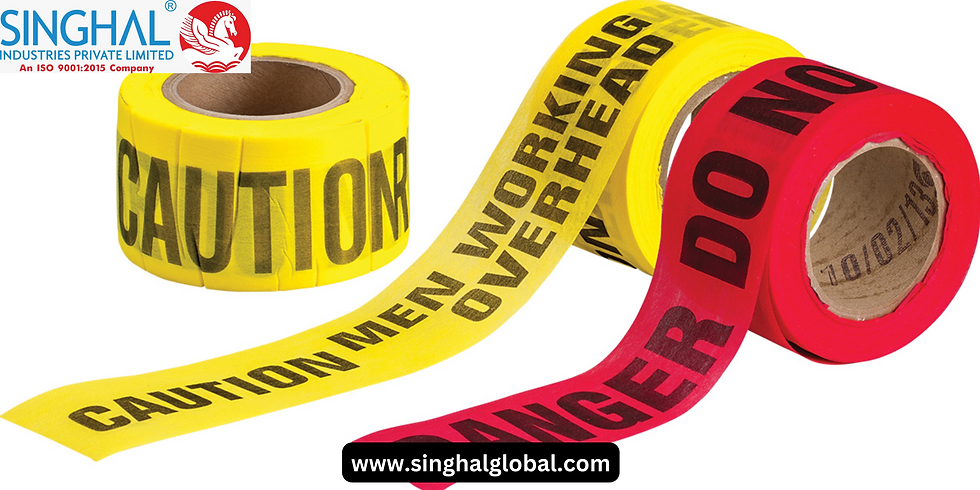How Biodegradable Plastic Bags Are Changing the Future of Packaging
- Singhal Industries Private Limited
- Sep 13, 2024
- 4 min read
In a world grappling with the overwhelming amount of plastic waste, Biodegradable poly bag manufacturers are emerging as a sustainable alternative to traditional plastic. These eco-friendly bags are designed to break down naturally, reducing the environmental footprint left by single-use plastics. In this article, we’ll dive into the details of biodegradable plastic bags, covering their importance, types, benefits, challenges, and more.
Types of Biodegradable Plastic Bags
Compostable vs. Biodegradable
While the terms "compostable" and "biodegradable" are often used interchangeably, they have distinct meanings. Compostable bags break down into non-toxic organic matter under specific composting conditions, whereas biodegradable bags degrade naturally over time, even in landfill conditions, but may leave some residue.
Types Based on Material
Biodegradable bags come in various materials such as plant-based polymers, corn starch, and polylactic acid (PLA). Each material has unique properties that affect how the bag breaks down and its overall environmental impact.
Differences Between Regular Plastic Bags
Traditional plastic bags are made from polyethylene, a material derived from fossil fuels that can take centuries to decompose. In contrast, biodegradable plastic bags break down within months or years, depending on their composition and disposal conditions.
The Environmental Impact
How Biodegradable Plastic Bags Help the Environment
One of the key advantages of biodegradable plastic bags is their ability to significantly reduce plastic waste. Unlike traditional plastic, which accumulates in landfills and oceans, biodegradable bags decompose naturally, leaving no harmful residue behind.
Reduction in Plastic Waste
By adopting biodegradable plastic bags, businesses and consumers can help reduce the 8 million metric tons of plastic that enter the ocean each year. These bags play a vital role in combating plastic pollution, preserving marine ecosystems, and improving overall environmental health.
Contribution to a Circular Economy
Biodegradable bags support the transition to a circular economy, where products are designed for longevity, reuse, and responsible disposal. By opting for biodegradable options, we close the loop on waste and promote sustainability.
Key Benefits of Using Biodegradable Plastic Bags
Environmental Sustainability
Biodegradable plastic bag suppliers decompose much faster than traditional plastics, helping to minimize environmental pollution. Their adoption in packaging and retail contributes to creating a more sustainable planet.
Improved Waste Management
Since biodegradable bags break down faster and leave no harmful toxins, waste management becomes more efficient. Compostable bags in particular can be used alongside organic waste, enriching the composting process.
Reduced Carbon Footprint
Biodegradable plastics are often made from renewable resources like corn starch, which reduces reliance on fossil fuels and lowers carbon emissions during production.

Challenges and Limitations
Cost and Affordability
Biodegradable plastic bags tend to be more expensive than their conventional counterparts, primarily due to the higher cost of eco-friendly materials. However, as demand rises and technology improves, costs are expected to decrease.
Availability and Accessibility
While biodegradable bags are gaining popularity, they are not yet as widely available as traditional plastic bags, especially in regions with limited access to sustainable products.
Disposal and Decomposition Issues
For biodegradable bags to fully decompose, they often require specific environmental conditions, such as high temperatures in industrial composting facilities. If not disposed of properly, they may take longer to break down.
How to Choose the Right Biodegradable Bag
Material Selection
When selecting biodegradable bags, consider the material composition and how it aligns with your sustainability goals. Look for bags made from certified compostable materials if you plan to dispose of them in composting facilities.
Certification and Quality Standards
To ensure you're choosing a high-quality biodegradable bag, look for certifications such as EN 13432 or ASTM D6400, which verify that the product meets industry standards for biodegradability and compostability.
Biodegradable Poly Bag Manufacturers and Exporters
Leading Companies
Several companies specialize in producing high-quality biodegradable poly bags. These companies are committed to sustainability and adhere to international standards.
Certifications and Standards to Look For
When sourcing biodegradable bags, ensure that manufacturers comply with relevant certifications to guarantee the bags' eco-friendliness and effectiveness.
Case Studies of Biodegradable Bags Use
Businesses Adopting Biodegradable Bags
Many businesses, especially in the retail and food sectors, are transitioning to biodegradable bags as part of their sustainability initiatives. Brands such as Whole Foods and IKEA are leading the way in adopting eco-friendly packaging.
Success Stories from Retail and Food Industries
The use of Bio plastic bag exporter in the food industry has been particularly impactful, reducing waste and improving the environmental footprint of packaging.
Conclusion
The shift toward biodegradable plastic bags is essential in addressing the global plastic crisis. By choosing biodegradable alternatives, businesses and consumers alike contribute to a cleaner, healthier planet. As technology advances and accessibility improves, biodegradable bags will become an integral part of sustainable packaging solutions for the future.
FAQs on Biodegradable Plastic Bags
How do biodegradable plastic bags differ from regular plastic bags?
Traditional plastic bags are made from fossil fuels and can take hundreds of years to break down, while biodegradable plastic bags are made from plant-based materials or bioplastics that decompose faster, typically within months to a few years.
Are biodegradable plastic bags truly eco-friendly?
Yes, biodegradable plastic bags are more eco-friendly than traditional plastic bags because they break down more quickly and do not leave behind harmful microplastics. However, proper disposal methods are essential to ensure they degrade fully.
What materials are used to make biodegradable plastic bags?
Biodegradable plastic bags can be made from plant-based materials like corn starch, polylactic acid (PLA), and other biopolymers. Some bags may also be partially made from petroleum-based materials but are designed to break down more easily.
How long does it take for biodegradable plastic bags to decompose?
The decomposition time of biodegradable plastic bags varies depending on the material and environmental conditions. In ideal composting conditions, they can break down within a few months to a year. In landfills, the process may take longer.
Can biodegradable plastic bags be composted?
Some biodegradable plastic bags are compostable, meaning they break down into non-toxic organic matter in industrial composting facilities. It’s important to check the product for composting certifications to ensure it is suitable for compost.



Comments